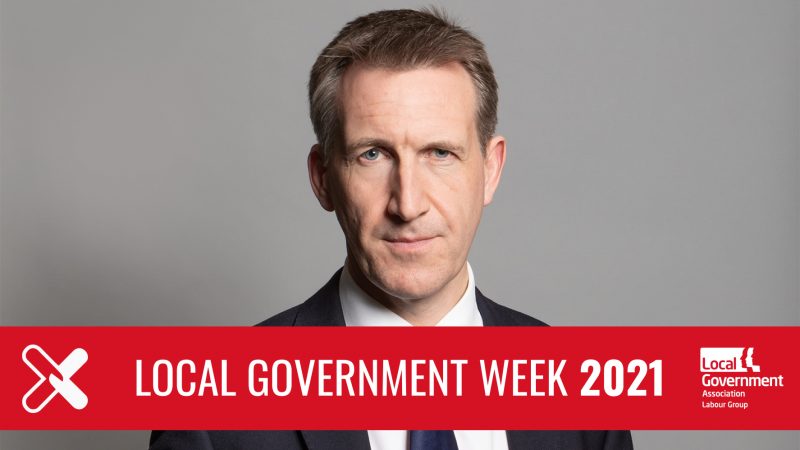
‘Constitutional reform’ and ‘devolution’ are words that may not stir the passions of the average Labour member as much as some causes our party has embraced. They should, because they are absolutely at the heart of any progressive project for the United Kingdom.
Politics is fundamentally about power, and there are few more progressive ideals than ‘power to the people’. Yet it is increasingly clear that Britain’s democracy is broken – to the point that it threatens to break our country as well. Our structures and rules have become unfit for purpose, in a way that goes against both our basic principles and our progressive aspirations for our country.
As metro mayor for South Yorkshire, I have seen the promise of devolution first-hand. It brings policy closer to the people and increases responsiveness and accountability. In an age where people across the political spectrum rage against a pervasive feeling of powerlessness, that must be a good thing.
But I’ve also seen how far we have to go. There has been some progress since the 1990s, with an unfinished revolution in devolution to the nations. Even under the Conservatives, we have inched forward. But the UK is still more centralised than any other comparable country. It is no coincidence that we are more regionally unequal as well.
Regional development is a hard-edged, practical example of that link. Until this year, most of the funding for the desperately needed ‘levelling up’ of the UK came from EU funds and the local growth fund, a total of about £3bn a year on average. Both were devolved, albeit incompletely and very imperfectly.
Instead, we will have a shared prosperity fund and a ‘levelling up fund’ (LUF). Between them, they are slated to be worth less than the funds they replaced – although exactly how much less depends on the upcoming budget. More importantly, the LUF now allocates funds competitively rather than automatically, and with more restrictions.
What’s wrong with a little competition? The answer is that it forces supposedly devolved administrations like mine to run after smaller short-term awards, linked to individual projects. We have done well lately at that game in South Yorkshire – but it still hamstrings the sort of patient, strategic investment, based on local priorities and reliable funding, which we need if we are to have any hope of dealing with the deep-seated roots of deprivation.
It is the failed model of the Towns Fund, vulnerable to politicisation and fundamentally aligned with Westminster’s priorities, not ours. It is the model you choose if your real objective is to maximise photo opportunities for Tory ‘Red Wall’ MPs, without conceding real control. It is the facade of devolution and levelling up, without actually trusting local communities or giving them the tools to get the job done.
That’s just one illustration of our dysfunction at a local level. At the national level, things are even worse. The crisis of legitimacy in our politics is literally destroying the country, driving disillusionment, nationalism and separatism across the UK. Scotland is only the leading edge of a much wider problem: three quarters of us believe our political system is not fit for purpose, and that our divisions are getting worse.
The tragedy is that the alternative is not hard to imagine. For me, it is a Britain that devolves power down and out while retaining the solidarity and coherence of our shared community. A Britain that functions as a true family of regions as well as nations. A Britain that is more open, more accountable, more democratic – and more equal and equitable as a result.
The exact shape of reform should be up to all of us. To have the greatest chance of success, what we need is a thoughtful, rigorous process of reform, insulated from partisan pressures and led by ordinary citizens. In practice, that means a deliberative constitutional convention or assembly. Before our divisions tear us apart, we need to sit down, as a family, to build a country we can all believe in.
Labour should lead that push. If that sounds like an ambitious agenda, all the better. We will not break out of our spiral of division and disunion unless we present a big, bold, positive vision of the alternative – a new, compelling narrative to counter the fiction that our politics are beyond repair.
What a contrast that would make with the current government. Against its recklessness, its weaponisation of division and mistrust, its utter failure to put any idea of the national good over its short-term political interests. Let us be the ones who say that division is not destiny, and who fight to heal and unite our country – not by force, but by making it worthy of our trust. That is an agenda as noble, and as worthwhile, as anything we have ever done before.


More from LabourList
Ian Murray: ‘John Swinney offers nothing new – Scotland can send a government to Westminster, not just a message’
Local elections 2024: Live polling day updates as activists urged to give mayor candidates final push
Tom Baldwin: ‘What Blackpool’s deckchairs can tell us about its by-election’